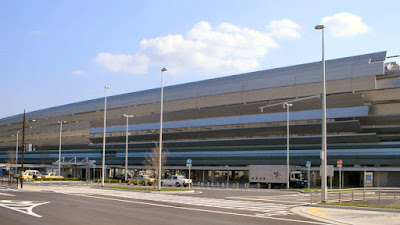After I celebrated Mass yesterday in a Dublin parish a number of women approached me to tell me how devastated they were by the overwhelming majority that voted in the Republic of Ireland on Friday 25 May in favour of removing the Eighth Amendment from the Irish Constitution that protected the right to life of both the life of a pregnant mother and of the child she was carrying. The voters chose to replace this with a sentence that will allow the Oireachtas, the Irish legislature, to legalise abortion.
The government plans to introduce legislation that will allow for abortion for any reason up to twelve weeks and in limited circumstances thereafter.
The women who spoke to me were shell-shocked, as I was myself with the 67 percent to 33 percent in favour of change. One of them told me that she had felt very depressed going to Mass but that my homily had given her some hope. I had simply emphasised, without referring directly to the referendum, that the Holy Trinity is the source of all life, that only God can give life and end our earthly life and that the Holy Trinity wants us to share their life for all eternity. This woman's words were very similar to what my father had said to me after my mother's funeral Mass in 1970.
A friend from overseas who is married to an Irishman here in Ireland emailed me to express her disappointment at what she saw as the lack of leadership from bishops, priests and religious on the matter. Most of the bishops, as far as I know, had issued letters to their people and those I read were clear and charitable.
But because of the scandals caused in the last few decades in Ireland of priests abusing children, of religious treating some children with cruelty in homes they were managing, in many cases on behalf of the State for children seen to be 'in trouble' or 'troublesome', bishops, priests and religious no longer have any moral authority, or very little at the most, even if they have had no connection whatever with what happened in the past.
The pro-repeal movement, who wanted abortion to be legalised widely - it was made legal in very limited circumstances in 2013 - made great use of the word 'compassion'. They emphasised the many women 'forced' to go to England for abortions because they could not have one in Ireland. They emphasised certain cases that were, without any doubt, very difficult and distressing for the parents involved and where they judged that the better thing was to have their child aborted. Some of these spoke specifically of the child they loved.
One of the main emphases of the pro-repeal group was 'healthcare for women'. It would seem that this includes the abortion of a healthy baby being carried by a healthy mother. Yet there are hundreds of patients in Irish hospitals in need of genuine medical care who are lying on trolleys, sometimes for days.
There was no mention by the pro-repealers of the rights of the unborn child, no compassion whatever. And there was no mention of the responsibilities and rights of fathers. They can simply walk away from the mother of their child and from the child. Or their desire to take care of the child can be simply ignored.
In the Philippines I found myself a number of times helping young women who found themselves with an unplanned pregnancy. There were always others willing to help in very practical, loving ways, caring both for the young mother and the child before and after birth. Not one of these mothers every regretted giving birth to their child. And some of the mothers I knew who were not married were welcomed as teachers in Catholic schools.
What disturbs me right now is that some legislators in Ireland who very publicly opposed the change are now saying that they will not oppose the proposed legislation, though as far as I know none have said that they will support it. At least one, Senator Rónán Mullen, whom I know personally, has said that he would work 'to try and curb the worst excesses of what the Government is proposing'. I have no doubt whatever that he will but some other pro-life politicians may need some encouragement so as not to lose heart.
Breda O'Brien, a teacher, columnist and patron of Iona Institute, reflects on the aftermath of the referendum in The Irish Times today: Anti-abortion movement has not given up and will not disappear.
John Waters, another strongly pro-life Irish writer, reflects on the vote in First Things, an American review: Ireland: An Obituary.
Blessed is the fruit of your womb (Luke 1: 42)
Del Verbo Divino
San Juan de la Cruz
Del Verbo divino
la Virgen preñada
viene de camino:
¡ si les dais posada !
Concerning the Divine Word
St John of the Cross
With the divinest Word, the Virgin
Made pregnant, down the road
Comes walking, if you'll grant her
A room in your abode.
Translation by Roy Campbell
+++
Rachel's Vineyard
One of a number of ministries to both women and men who have been directly affected by abortion is Rachel's Vineyard. I have connections with Rachel's Vineyard, Ireland, which has brought its healing retreat to such places as the Faroe Islands, South Korea and Lebanon.




















